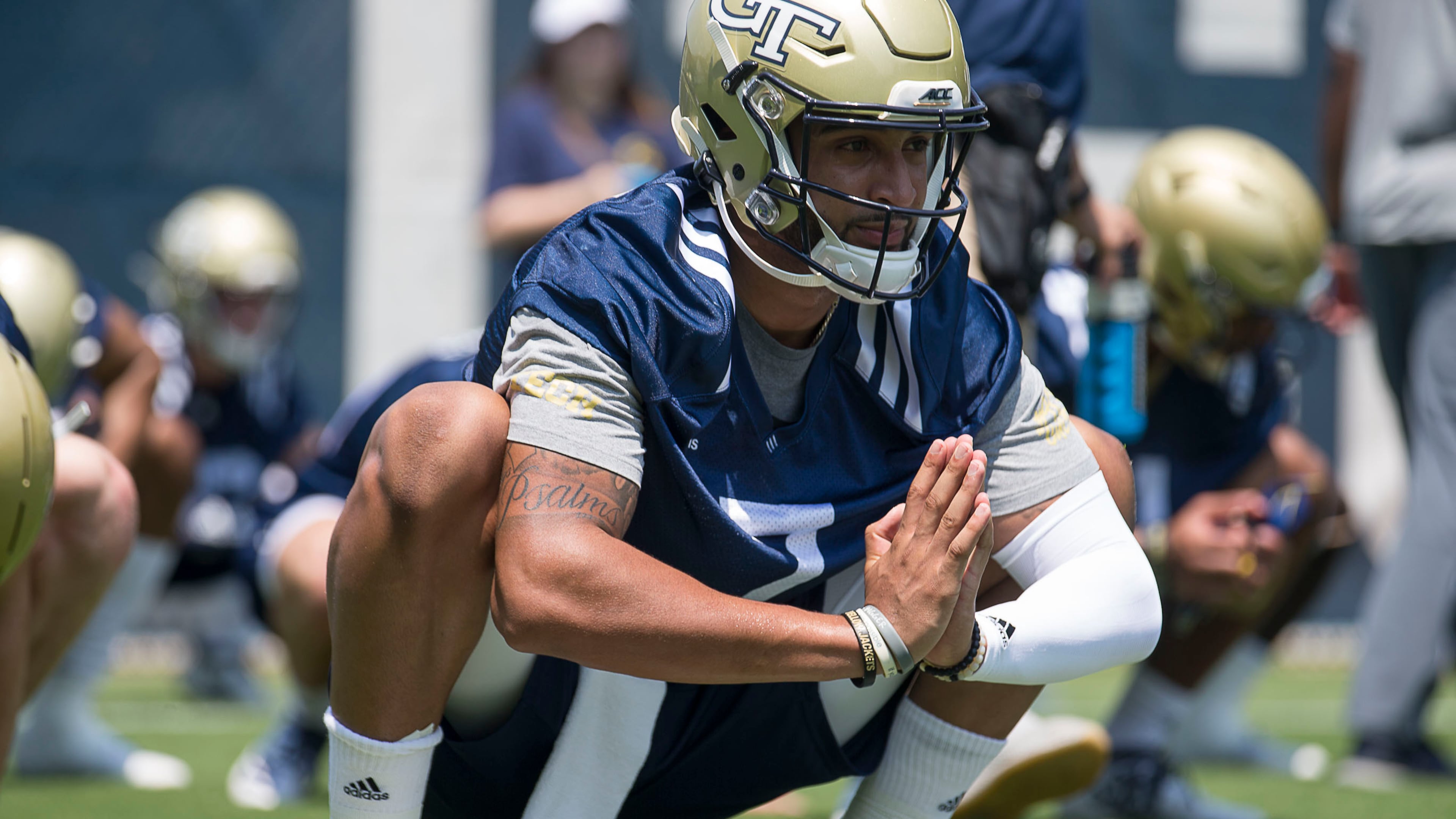Lucas Johnson looks to NCAA for additional year of eligibility

Georgia Tech quarterback Lucas Johnson is hoping that the NCAA will grant him an additional year to complete his four years of eligibility.
Johnson redshirted in his first season on campus (2016), played as a redshirt freshman and then missed the entire 2018 season after suffering a foot injury in the preseason. As a result, he’ll only have three years of competition, as he has two more years left (2019 and 2020) before the five-year window that athletes are allotted to complete their eligibility closes.
But he has sought a waiver from the NCAA to grant him a sixth year to play four seasons. It’s highly similar to the case of linebacker David Curry, who also redshirted in his first year and then missed a year due to injury, and recently received an extra year to finish his eligibility.
“It would mean a lot,” Johnson said Thursday following the Yellow Jackets’ second practice of the preseason. “This last year was disappointing, because I lost out on a whole year, but right now I’m not really focused on that. I’m focused on this year that is ahead of me.”
Johnson appears to be in the lead to win the starting quarterback job in competition with Tobias Oliver, James Graham and Jordan Yates. Should he be granted the waiver, it would mean that this would be his sophomore year, not his junior year. His foot (he suffered a Lisfranc injury last August) is not bothering him, he said.
“I feel like my foot’s been holding up for me, and hopefully it holds up for the rest of my career,” he said.
An NCAA rule change enacted in 2018 has made cases like Curry’s and Johnson’s candidates for waivers. The NCAA grants waivers for a sixth year in cases where athletes miss out on a season of competition due to circumstances beyond the athlete’s control, like injury or an illness in the immediate family. The rulebook states that a redshirt year is considered a circumstance under the athlete’s control.
However, in 2018, the NCAA changed the rule to specify that waivers can be approved for athletes who are redshirted in their first year on campus by decision of the institution (i.e., coaching staff) and then lose another year due to circumstances beyond their control, which was the case for Curry and Johnson.


